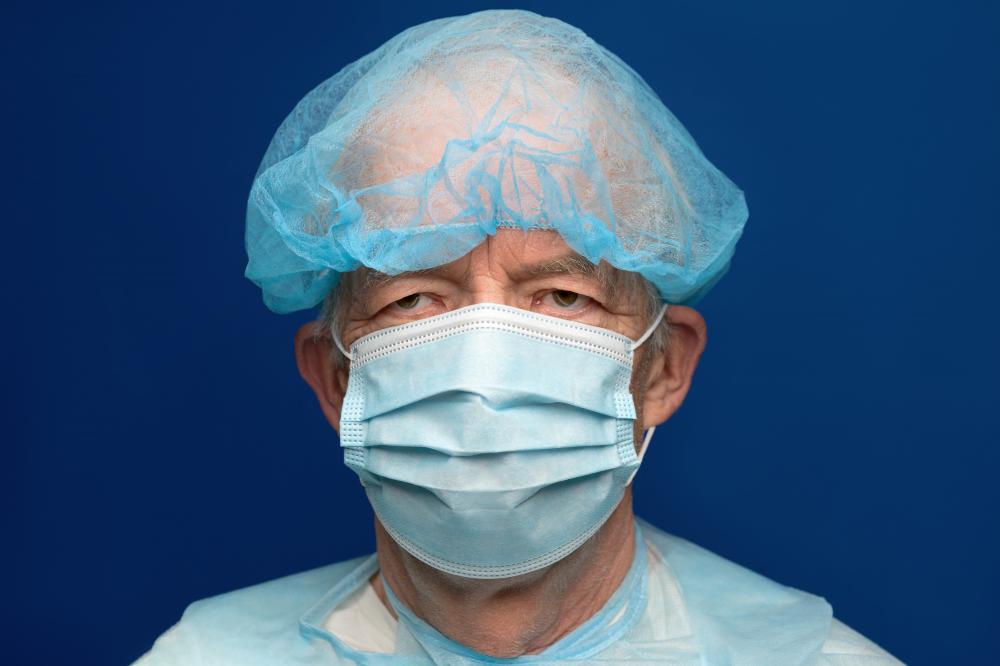Bradenton Cataract Surgery

Understanding Cataract Surgery
When it comes to Bradenton Cataract Surgery, our team at Coastal Eye Institute stands at the forefront of innovative eye care. Cataracts cloud the natural lens of the eye, leading to diminished vision, and surgery is the only definitive treatment to restore sight. Our fellowship-trained ophthalmologists specialize in the most advanced surgical techniques, ensuring a blend of precision, safety, and personalized care.
The Surgical ProcessThe procedure involves removing the clouded lens and, in most cases, replacing it with a clear, synthetic lens. This outpatient surgery offers a high success rate, with many of our patients reporting significantly improved vision shortly after the procedure. At Coastal Eye Institute, we use state-of-the-art technology to customize the surgery to each patient's specific vision needs, making Bradenton Cataract Surgery not just a medical procedure, but a doorway to regained independence and quality of life.
Post-Surgery Care
Following surgery, our care team provides comprehensive guidelines to ensure a smooth recovery. While patients often return home the same day, the healing process is crucial. We emphasize the importance of following post-operative instructions closely, which include using prescribed eye drops to prevent infection and inflammation, and wearing an eye shield to protect the eye during sleep.
The Healing PeriodMost patients observe a rapid improvement in their vision, though complete healing can take up to a few weeks. During this period, it's normal to experience mild discomfort, light sensitivity, and fluctuation in vision clarity. Our dedicated staff is always available to address any concerns and to monitor your recovery, ensuring a smooth transition back to your daily activities.
Choosing the Right Surgeon
Selecting the right surgeon for Bradenton Cataract Surgery is paramount. Our ophthalmologists at Coastal Eye Institute are not just skilled surgeons; they are compassionate individuals dedicated to providing personalized care. Each has undergone extensive training in their subspecialty, offering a level of expertise and empathy that sets us apart.
Our patient-first approach is reflected in the positive experiences shared by those we've had the honor of serving. From the initial consultation through to post-operative care, we foster an environment of trust, ensuring that patients are informed, comfortable, and supported every step of the way.
Innovative Techniques in Cataract Surgery
Bradenton Cataract Surgery has evolved significantly over the years, and our practice remains at the cutting edge of these advancements. We utilize techniques that not only enhance safety and effectiveness but also reduce recovery time, allowing patients to experience the benefits of surgery sooner.
Customizable Lens OptionsOne of the most exciting advancements is the array of intraocular lens (IOL) options available. These lenses are designed to address a variety of vision needs, including astigmatism correction and the reduction of reliance on eyeglasses. During your consultation, we'll discuss which lens option is best suited to your lifestyle and vision goals.
Patient Testimonials
Nothing speaks louder than the stories of those who have walked through our doors seeking clearer vision and found it through Bradenton Cataract Surgery. From regained independence to the simple joy of witnessing the vivid colors of a sunset, our patients' experiences illuminate the profound impact of quality eye care.
We're humbled by the feedback we receive, with many patients highlighting the compassion and expertise of our team. These testimonials motivate us to continue striving for excellence in everything we do.
Preparing for Surgery
Preparation is key to the success of Bradenton Cataract Surgery. During your pre-operative visit, we'll conduct a thorough examination and discuss your medical history to ensure the best possible outcome. We'll also provide detailed instructions on how to prepare for the day of surgery, covering everything from fasting guidelines to arranging transportation home.
This preparation extends beyond the physical aspects of surgery. We understand that undergoing any surgical procedure can be daunting, which is why we prioritize patient education and open communication. Our team is committed to answering your questions and alleviating any concerns, ensuring you step into surgery with confidence.
Aftercare and Follow-Up
The journey to restored vision doesn't end when surgery concludes. Bradenton Cataract Surgery is only the beginning. Post-operative care plays a crucial role in achieving the best vision outcome and our team provides meticulous follow-up care.
From the first post-operative visit to assess healing, to long-term check-ups to monitor eye health, we stand by our patients every step of the way. Adjusting to life after cataract surgery is a process, and whether it's navigating the need for reading glasses or celebrating newfound clarity, we're here to support our patients through it all.
Why Choose Us
At Coastal Eye Institute, we don't just perform Bradenton Cataract Surgery; we change lives. Our combination of advanced technology, skilled surgeons, and a compassionate approach to care sets us apart. We believe in treating not just the eye but the person as a whole, ensuring every patient feels valued, heard, and cared for.
Choosing us means choosing a partner in your journey to better vision. We invite you to join the countless individuals who have trusted us with their eyesight, experiencing firsthand the difference compassion and expertise can make.
If you're considering Bradenton Cataract Surgery, we're here to help. Contact us today to schedule a consultation and take the first step towards clearer vision and a brighter future.

What I wish I knew before cataract surgery
Many of our patients share that before undergoing cataract surgery at Coastal Eye Institute, they wished they had known just how life-changing the procedure would be. They had lived with gradually worsening vision and hadn't realized the extent to which this affected their daily lives. Post-surgery, the clarity and vividness of vision were almost immediate surprises for many. Another aspect often mentioned is the simplicity of the procedure and the minimal discomfort experienced. Knowing this beforehand might have eased their anxiety. Lastly, understanding the importance of post-surgery care for optimal recovery is something they wished had been more emphasized. Did you know that adhering closely to your aftercare plan significantly influences your recovery speed and the quality of your vision post-surgery?
Does Medicare pay 100% on cataract surgery?
Medicare can cover cataract surgery, but it's important to know that it usually doesn't cover 100% of the surgery costs. Medicare Part B typically covers outpatient procedures, which can include cataract surgery, but patients are responsible for meeting their deductible and then typically pay 20% of the Medicare-approved amount for the surgery. If the surgery is performed using traditional methods, Medicare's coverage is straightforward. However, if you opt for advanced options, like certain premium intraocular lenses or laser-assisted techniques that might exceed the basic requirements to restore vision, additional out-of-pocket costs may apply. It's vital to check the details of your Medicare plan and discuss with us or your Medicare provider what costs you can expect and plan accordingly.
How many days rest is needed after cataract surgery?
Recovery varies from patient to patient, but generally, most patients find that they can return to their normal, non-strenuous activities as soon as the day after their surgery. However, it's crucial to avoid activities that could stress or harm the eye for at least a few weeks. We advise taking it easy for the first couple of days post-surgery to allow your eye to start healing without any unnecessary strain. You'll need to follow post-operative care instructions closely, including using eye drops and attending follow-up appointments. While the initial recovery is relatively quick, complete healing and vision stabilization can take several weeks. How do you envision your recovery period, and what adjustments might you need to make to accommodate a smooth healing process?
How bad do cataracts have to be before insurance will pay?
Insurance coverage for cataract surgery, including Medicare, typically requires that the cataracts significantly impact your quality of life or vision, making daily activities difficult. It's not so much about how "bad" the cataracts are in clinical terms but rather how much they affect your ability to live normally. Symptoms like blurred vision, difficulty seeing at night, and sensitivity to glare that affect your daily activities could make you a candidate for surgery covered by insurance. It's essential to have a comprehensive eye examination and a discussion with our team at Coastal Eye Institute. We can assess the impact on your vision and help you understand your insurance options. Have you noticed changes in your vision that affect your daily life, prompting you to consider whether it's time for surgery?
What should I consider when choosing the right surgeon for my cataract surgery?
Choosing the right surgeon is a critical decision in your journey to clear vision. At Coastal Eye Institute, we believe that several factors should guide your choice: the surgeon's experience, training, and success rate with cataract surgeries; the technology and techniques they use; and their approach to patient care. Our surgeons are not only highly skilled in advanced cataract surgery techniques but also deeply committed to providing personalized, compassionate care. We encourage you to have an open dialogue with potential surgeons about their qualifications, the specifics of the procedure they recommend for you, and any concerns you might have. How comfortable and confident do you feel with the information and care approach offered by the surgeon?
How should I prepare for cataract surgery?
Preparing for cataract surgery involves several steps to ensure the best outcome. During your pre-operative visit, we will conduct a thorough examination and review your medical history. It's important to discuss any medications you're taking as some may need to be temporarily adjusted. You'll also receive instructions on fasting and arranging transportation for the day of your surgery since you won't be able to drive immediately afterward. Preparing your home for a comfortable recovery -- such as making sure you have easy access to essentials -- is also a good idea. Most importantly, understanding the post-operative care instructions beforehand can ease your mind and promote a smooth recovery. Is there anything specific you feel you need to prepare for or any concerns you have about the surgery or recovery process?
What does aftercare and follow-up look like after cataract surgery?
Aftercare and follow-up are crucial to your recovery and the long-term success of your cataract surgery. Immediately after the procedure, you will need to use prescribed eye drops to prevent infection and reduce inflammation. You might also need to wear an eye shield, especially at night, to protect the eye. We schedule post-operative visits to monitor your healing and visual recovery, adjusting your treatment plan as necessary. These appointments are an opportunity to address any concerns or questions you might have. Long-term, regular check-ups help us ensure your eyes remain healthy. Our team is here to support you through every step of your recovery and beyond. How can we assist you in making your aftercare process as smooth and comfortable as possible?
Resources
- American Academy of Ophthalmology - What Are Cataracts? - Learn more about cataracts and their impact on vision from the leading authority in ophthalmology.
- National Eye Institute - Cataracts - Explore detailed information about cataracts, including causes, symptoms, and treatment options from a reputable government institute.
- Mayo Clinic - Cataract Surgery - Understand the surgical process and post-operative care for cataract surgery from one of the top medical centers in the world.
- WebMD - Cataracts Health Center - Access articles, videos, and resources on cataracts and related eye conditions from a trusted source for medical information.
- Centers for Disease Control and Prevention - Vision Health - Discover valuable resources on vision health and eye diseases, including cataracts, from a leading public health institute.